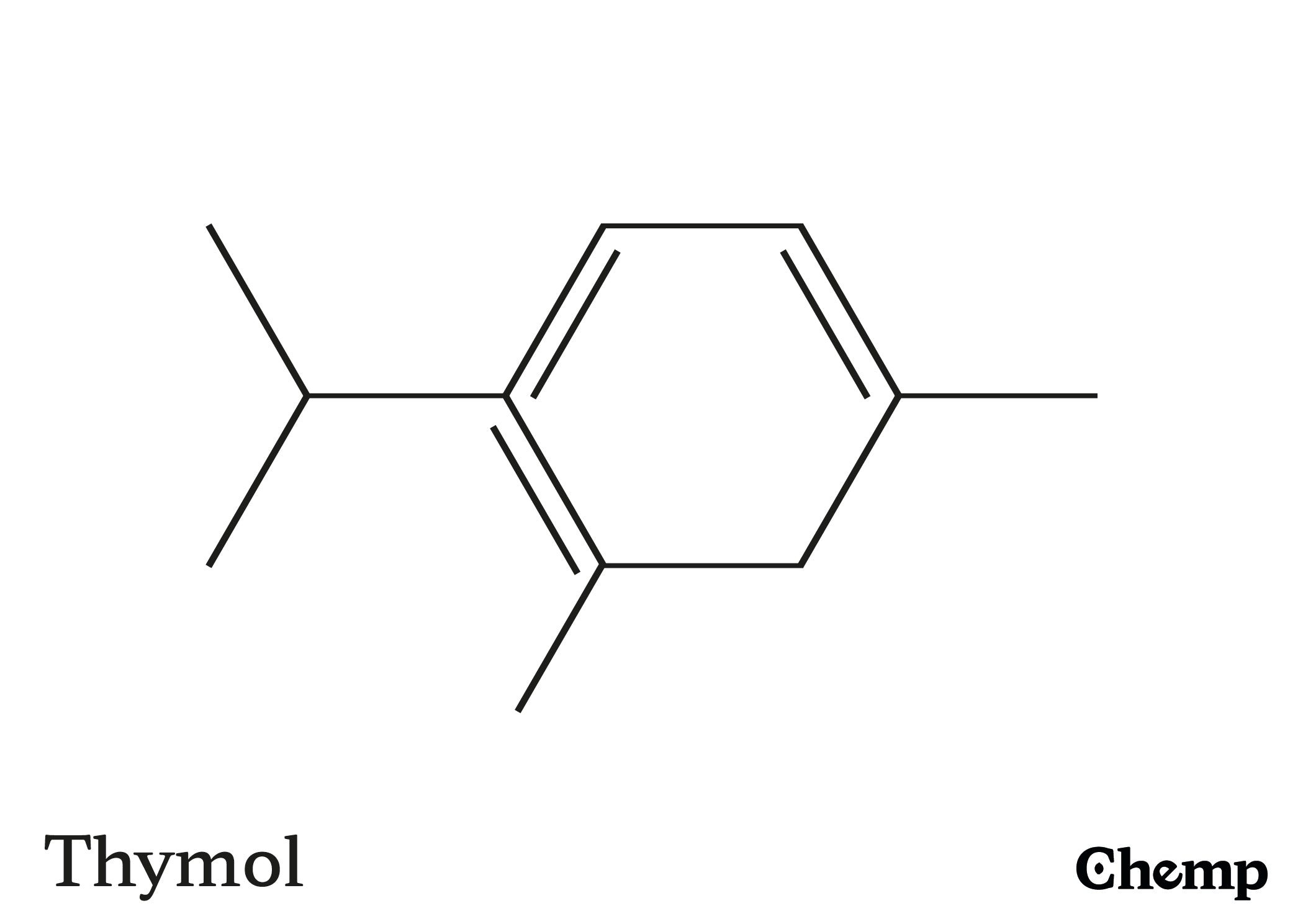Thymol

Thymol – Terpen Profil
Zu finden in:
Thymian Namensgeber von Thymol ist die wichtigste Geschmackskomponente der Pflanze und kommt auch in einer Vielzahl von Früchten, Kräutern und Käse vor, darunter Blaubeeren, Mango, Lakritze und Gruyere.
Mit einem waldigen Geschmacksprofil von Holz und Gewürzen und einem sanften, süßen Aroma eignet sich Thymol gut für Bonbons und Desserts.
Therapeutische Eigenschaften:
Als natürliches Desinfektionsmittel ist Thymol ein bewährtes Heilmittel bei septischen, Pilz- und bakteriellen Erkrankungen. Als solches ist das Terpen ein wichtiger Bestandteil von Mundpflegeprodukten wie Zahnpasta und Mundwasser.
Gefunden in:
Thymian
Siedepunkt:
232 ℃
450 ℉
In vitro Antimicrobial
- Mechanisms of Antibacterial Action of Three Monoterpenes/ Evaluation of Combined Antibacterial Effects of Eugenol, Cinnamaldehyde, Thymol, and Carvacrol against E. coli with an Improved Method/
- Activity of thymol, carvacrol, cinnamaldehyde and eugenol on oral bacteria Author links open overlay panel/ Antimicrobial efficacy of chlorhexidine digluconate alone and in combination with eucalyptus oil, tea tree oil and thymol against planktonic and biofilm cultures of Staphylococcus epidermidis


